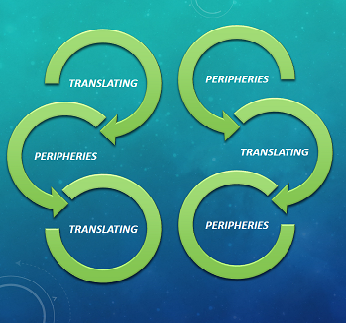Beyond Translating French into English: Experiences of a Non-Native Translator
DOI:
https://doi.org/10.21992/T9R906Keywords:
Uganda, Translation, non-native translator, challenges of translation, linguistic competence, intercultural competence and knowledge transferAbstract
This paper documents a non-native translator’s experience in an academic setting, focusing on the challenges of translating different kinds of texts from French into English at the Institute of Languages, Makerere University. Makerere Institute of Languages (MIL) is composed of four clusters: Foreign Languages, African Languages, Communication Skills and Secretarial Studies, Service Courses and Soft Skills (Wagaba 97). The services offered include teaching language skills and culture to university students and the general public; communication skills to people who want to improve in English, French, German, Arabic, Swahili and local languages; and translation and interpretation in the languages mentioned above. These services are offered at this institute because there is no other well-recognised institution in Uganda that engages in translation or interpretation, yet there is always a big demand for them. The emphasis in this study is on teachers of French who also render translation services to a wide range of clients at the Institute of Languages. The main focus is on the experiences and opinions of non-native translators. The aim is to highlight the challenges a non-native translator encounters in the process of translating different categories of documents from French into English for purposes of validation of francophone students’ academic documents and their placement in Uganda universities, verification of academic qualification of teachers from francophone countries who come to Uganda in search of teaching jobs, and mutual understanding at international conferences held in Uganda whose delegates come from francophone countries. Selected texts will be critically examined to illustrate the specific challenges a non-native speaker encounters while translating from and into a language or languages which are not his/her first language or mother tongue. The paper deals with the following questions: What does the process of translating involve? What are the challenges encountered? Does every fluent French language teacher qualify to be a competent translator? What factors determine ‘competence’ in translation? What are the limitations faced in an academic setting? The discussion is based on the premise that competence in translation requires linguistic and intercultural competence, among other competencies. The outcome contributes to the understanding that translation in any setting is ultimately a human activity, which enables human beings to exchange information and enhance knowledge transfer regardless of cultural and linguistic differences.Downloads
Downloads
Published
Issue
Section
License
Authors who publish with this journal agree to the following terms: a.Authors retain copyright and grant the journal right of first publication with the work simultaneously licensed under a Creative Commons Attribution License that allows others to share the work with an acknowledgement of the work's authorship and initial publication in this journal. b.Authors are able to enter into separate, additional contractual arrangements for the non-exclusive distribution of the journal's published version of the work (e.g., post it to an institutional repository or publish it in a book), with an acknowledgement of its initial publication in this journal. c.Authors are permitted and encouraged to post their work online (e.g., in institutional repositories or on their website) prior to and during the submission process, as it can lead to productive exchanges, as well as earlier and greater citation of published work (See The Effect of Open Access).



